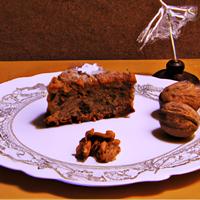
1 serving (80 grams) contains 200 calories, 5.0 grams of protein, 10.0 grams of fat, and 25.0 grams of carbohydrates.

Log this food in SnapCalorie

Nutrition Information
Calories |
588.2 | ||
|---|---|---|---|
% Daily Value* |
|||
| Total Fat | 29.4 g | 37% | |
| Saturated Fat | 8.8 g | 44% | |
| Polyunsaturated Fat | 0 g | ||
| Cholesterol | 58.8 mg | 19% | |
| Sodium | 441.2 mg | 19% | |
| Total Carbohydrates | 73.5 g | 26% | |
| Dietary Fiber | 5.9 g | 21% | |
| Sugars | 0 g | ||
| protein | 14.7 g | 29% | |
| Vitamin D | 0 mcg | 0% | |
| Calcium | 88.2 mg | 6% | |
| Iron | 4.4 mg | 24% | |
| Potassium | 294.1 mg | 6% | |
* Percent Daily Values are based on a 2,000 calorie diet. Your daily values may be higher or lower depending on your calorie needs.
Food Attributes
Source of Calories
About Sugar free cake
Sugar-free cake is a delightful dessert crafted without refined sugar, often sweetened naturally with alternatives like stevia, erythritol, or fruit-based purees. Rooted in the growing interest for healthier eating options, it has become popular in Western cuisine and wellness-focused baking. Typically made with basic cake ingredients such as flour, eggs, and baking powder, many sugar-free recipes also incorporate nutritious additions like almond flour, Greek yogurt, or coconut oil to enhance flavor and texture. The absence of processed sugar makes it a lower-calorie choice for those managing their glucose levels or seeking to reduce overall sugar consumption without compromising on indulgence. While still a treat and potentially calorie-dense depending on fat and carbohydrate content, sugar-free cake aligns with health-focused dietary goals when enjoyed in moderation.



